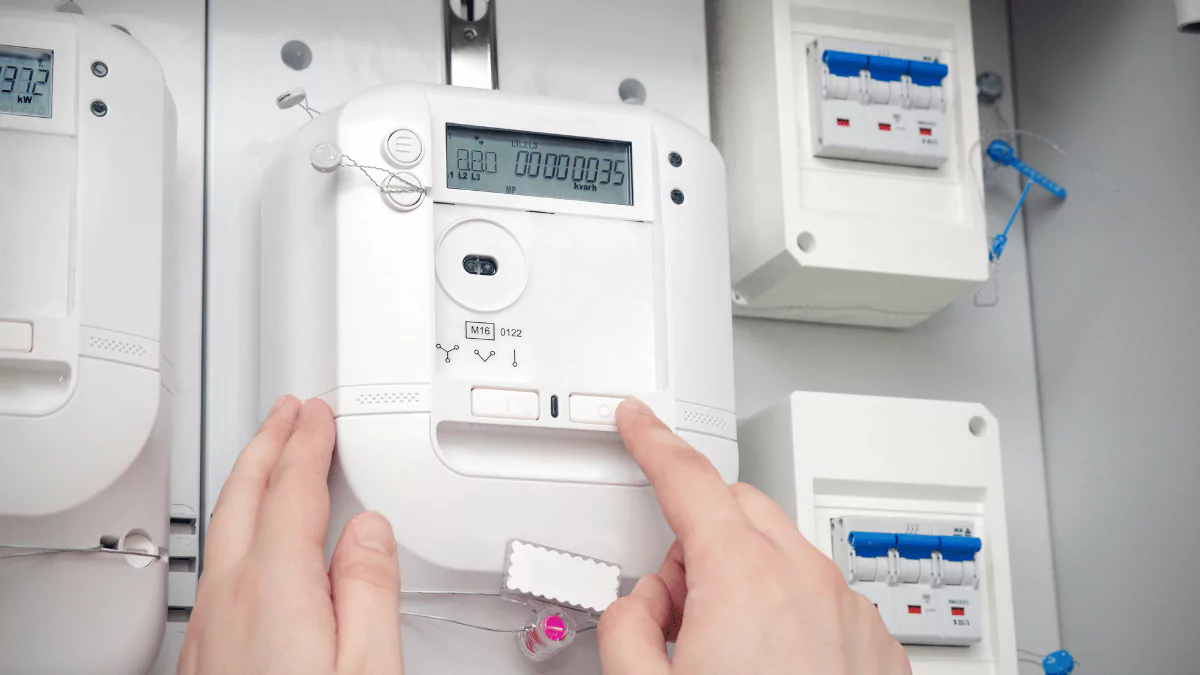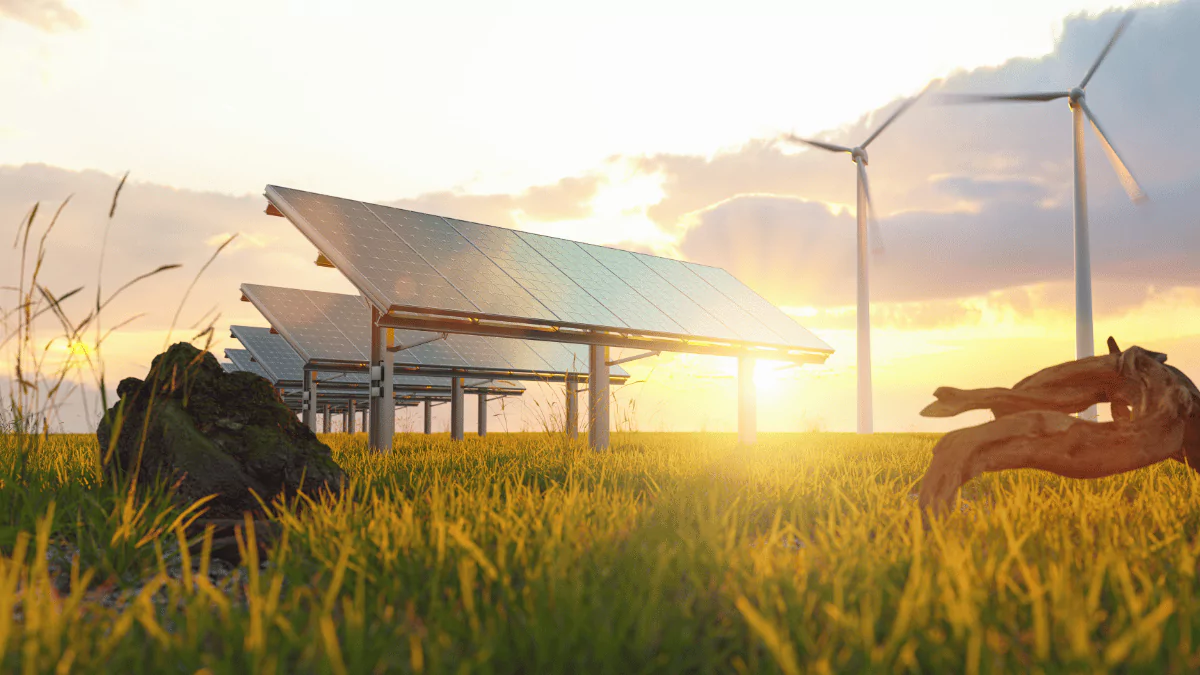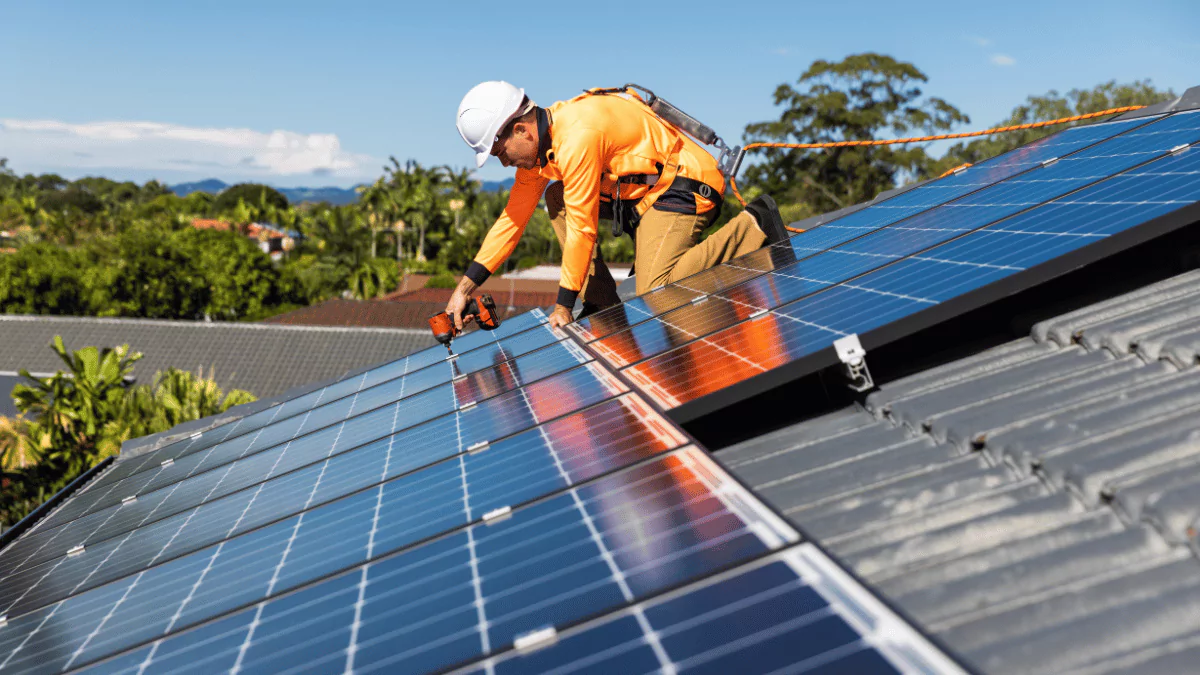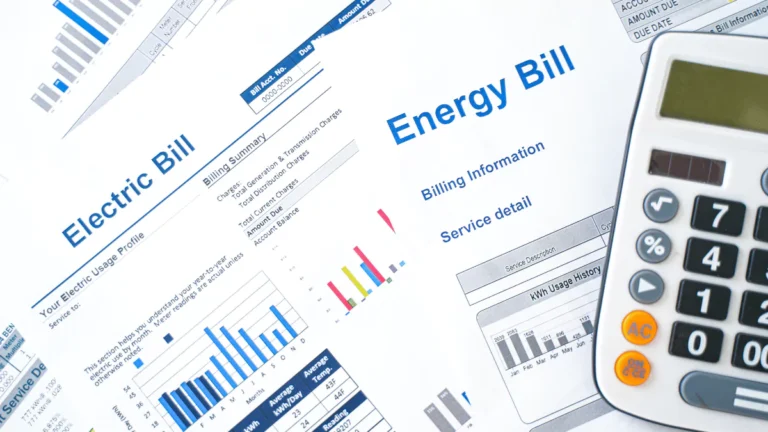In a time where electricity prices seem to climb a little higher each year, finding smart ways to bring down your utility bills can make a big difference. The good news? You don’t have to freeze in winter or sweat through the summer to cut back on your energy use. With just a few practical changes, you can stay comfortable while also saving a nice chunk of change.
Let’s break down some of the best energy-saving tips that work all year round—most of them won’t cost you a thing.
Top 10 Simple Yet Effective Energy Saving Tips
You can do a lot of things to keep your energy bills down. Here are our perfected 10 tips for saving energy year-round, and most won’t cost you even a cent.
1. Flip the Switch on Wasted Power

It sounds easy, but turning off lights and appliances when you’re not using them is one of the simplest ways to cut your electricity bill. Leaving things like your TV, gaming consoles, or even Wi-Fi router running overnight? That’s silent money slipping out of your pocket. Hit the power switch or unplug devices if you won’t be using them for a while. Even standby mode uses energy over time.
A quick win? Turn off your heater or air conditioner before leaving the house. Those extra hours of unnecessary usage add up fast.
2. Upgrade Your Lighting

LED light globes use far less energy than older-style bulbs, and they last much longer too. Swapping out your old lights for LEDs can cut your lighting costs by as much as 80%. Plus, it means lesser trips to the store for replacements. One small swap, long-term payoff.
3. Get Smart with Your Curtains and Doors

Whether it is the middle of winter or the peak of summer, the way you use your space can either help or hurt your energy usage. Shut doors to rooms you’re not using so you’re not heating or cooling the whole house unnecessarily.
In winter, make sure curtains are closed at night to trap warmth inside. In summer, keep them drawn during the day to block the sun and keep your home cooler. If you’ve got draughts sneaking in through windows or under doors, plug them up with simple draught stoppers.
4. Rethink Laundry Habits

Your washing machine and dryer are two of the most power-hungry appliances in the house. But with a few changes, you can trim the cost.
- Wait until you have a full load before starting a wash.
- Wash in cold water whenever possible—this alone can save around $100 a year.
- Use the shortest cycle that does the job.
- Skip the dryer. Hang your clothes outside in direct sunlight or utilize an indoor drying rack with a fan if it’s raining.
Dryers are convenient but expensive to run. Cut back on using them, and you’ll notice a difference on your next bill.
5. Learn More About How Your Home Uses Energy

If you’re serious about trimming your energy use, it helps to know where the big power drains are. Tools like the Residential Efficiency Scorecard (available in Australia) can rate how much energy your home uses and help point out what’s making your bills higher.
Whether you rent, own, or are planning to renovate, knowing how your home performs can guide you in making changes that lead to real savings. You can also use expense tracking apps to monitor energy costs and set better usage habits.
6. Make Your Kitchen Work Smarter

Your fridge runs 24/7, so it makes sense to pay attention to how it’s performing. Keep the temperature set between 4–5°C for the fridge, and -15 to -18°C for the freezer. Check the door seals to make sure cold air isn’t escaping. And if you’ve got a second fridge or freezer, only turn it on when you need it.
For cooking:
- Defrost frozen meals in the fridge instead of the microwave.
- Use the microwave when possible—it uses less energy than your oven.
- Keep pot lids on while cooking to reduce cooking time.
- Make bigger batches of food and freeze leftovers for later.
Dishwashers? Wait until they’re full, and use the economy or eco setting if it has one.
7. Smarter Heating and Cooling Settings

Heating and cooling often make up the biggest chunk of a household’s energy bill. But a few tweaks can bring those costs down without sacrificing comfort.
- In winter, set your heater to 18–20°C. In summer, aim for 26°C or higher.
- Each degree above 20 in winter adds about 10% to your heating bill.
- Use zoned heating and cooling if your system allows it—no need to warm up the whole house if you’re only using one room.
Thinking about upgrading? Split systems are far more efficient than old electric heaters and can save you hundreds each year. Some programs even offer rebates to help cover the cost of upgrading.
8. Check for a Better Energy Deal

Many people stick with the same energy provider for years, even when there might be cheaper deals out there. Take ten minutes to compare rates using a government-backed comparison tool (like Victorian Energy Compare, for example). All you need is a recent bill and some household info.
People who use these tools often end up saving over $300 a year, just by switching providers.
9. Add Ceiling Insulation

Insulation might not be glamorous, but it can seriously cut down your heating and cooling costs. A well-insulated ceiling helps your home stay warmer in winter and cooler in summer, so you don’t need to run the heater or air conditioner as often.
The upfront cost can pay off quickly, and it’s one of the most effective ways to reduce long-term energy bills.
10. Tap Into Solar Savings

If you’re able to invest in solar panels or solar hot water, this is one of the best ways to reduce your dependence on grid energy. Not only can you lower your bills, but any excess electricity you generate might earn you credits or payments from your energy retailer.
Even if full solar isn’t in your budget, checking out smaller incentives or community programs could help you start small and grow over time.
Final Thoughts
Cutting back on energy use doesn’t have to be a chore. Most of the time, it just comes down to being a bit more aware and making a few smart choices. Whether it’s turning off appliances, adjusting your thermostat, or hanging out the washing instead of using the dryer—these changes are easy to make, and they all add up.
Try a few of these tips this week and keep an eye on your next energy bill. You might be surprised how much you save, without giving up comfort or convenience.
Michael Adams is a professional finance writer with a focus on tax education, budgeting, and personal finance. His goal is to make income tax topics clear and practical for individuals and entrepreneurs.

